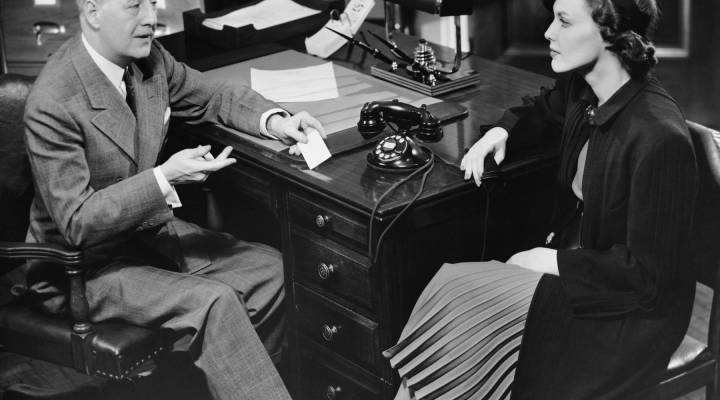
5 things to ask a potential financial planner

Whether your finances are in order or you need a little help, advice from a professional with financial know-how can be useful. But Marketplace Weekend listener Dan Nimlos asked for a little more help:
@MarketplaceWKND great show this week, @lizzieohreally and co! Could you do a 5 Things on what to ask when meeting with a financial planner?
— Dan Nimlos (@danieljamesMN) October 29, 2017
Laura Adams, host of “The Money Girl Podcast,” shares five questions you should keep in mind when looking for a financal planner:
- 1. What are your industry credentials?
Remember that looks can be deceiving. Old or young, working independently or for a large firm — these details don’t tell you if he or she is competent or trustworthy. Unlike other professions that require a degree, financial advisers don’t have to earn one. So look for certifications such as certified financial planner (CFP), chartered financial analyst (CFA) and chartered financial consultant (ChFC).
If you just want help making investments, a registered investment adviser (RIA) is a special type of broker who is held to a higher standard because he or she must act as your fiduciary. That means the adviser has a professional obligation to give you investment advice that’s in your best interest. If you need tax or estate advice, consider using a certified public accountant (CPA) or an estate attorney.
- 2. What do you consider your area of financial expertise?
There are many different types of financial professionals, so be sure you work with someone who specializes in the type of advice you need, such as planning for retirement, investing, taxes, insurance, estate planning or business strategy.
- 3. Who is your typical client, and what problems do you solve for him or her?
Find out how similar you are to an adviser’s current clients. Do you have similar financial goals, income and net worth? If you’re an outlier, you may not get the best advice or service possible.
- 4. What’s your financial philosophy or investing style?
Always discuss how a financial professional views his or her role and how they measure success. Watch out for red flags like promises to make you a lot of money in a short period of time. That’s a sign that you may be dealing with someone who isn’t ethical or could be trying to scam you. Be sure to interview at least three financial advisers — in person, on the phone, via Skype or Google Hangout — before hiring one.
Be ready to lead the conversation with questions that get him or her talking openly about themselves, their current clients and how they prefer to work. You should be able to discuss any aspect of your finances and feel like you’re fully understood. So if you don’t feel comfortable with him or her, just move on to the next potential candidate.
- 5. How do you charge for services?
Don’t be hesitant to ask exactly how a financial professional is paid. Some may earn commissions on products you buy, such as an investment fund or life insurance. Others may bill an hourly rate, charge a flat fee or receive a combination of these types of income.
A growing number of planners are fee only, which means that they don’t earn commissions but charge a flat rate to analyze your situation and create a customized financial plan. You can learn more at the National Association of Personal Financial Advisors or the Certified Financial Planner Board.
For 10 essential questions you must ask before hiring an adviser, use the Financial Adviser Assessment Tool (PDF) to rate and compare multiple advisers so you know who’s the best match for you.
There’s a lot happening in the world. Through it all, Marketplace is here for you.
You rely on Marketplace to break down the world’s events and tell you how it affects you in a fact-based, approachable way. We rely on your financial support to keep making that possible.
Your donation today powers the independent journalism that you rely on. For just $5/month, you can help sustain Marketplace so we can keep reporting on the things that matter to you.


















